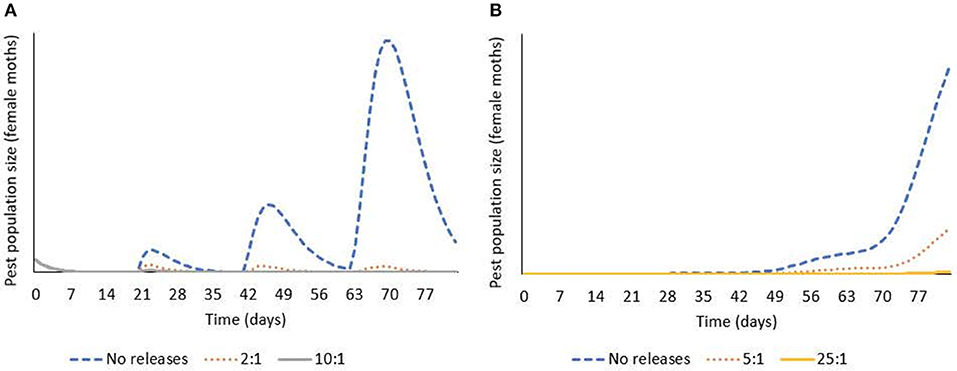With sustained releases, the pest population is suppressed in a targeted, ecologically sustainable way. After releases stop, the self-limiting insects decline and disappear from the environment within a few generations.
Using biology to mitigate need for chemicals was the dream of Rachel Carson
Fewer pesticides while not causing starvation has been the goal of science even before Rachel Carson wrote her bestselling book Silent Spring. She advocated for biological solutions to overuse of chemicals like DDT, owing to sterile insect techniques for managing insects developed back in the 1950s. She knew that we would never exist without them but she believed that for true progress we needed to use them less than what was being done at the time.
That has happened. Using far less chemical inputs than in the past, farmers in progressive nations are growing more food than ever. Only Europe is falling behind but scientists there are calling for modern approaches to sustainability too.

Deterministic modeling shows releases of OX4319L males suppress pest populations of P. xylostella, in which bi-weekly releases of OX4319L male moths are conducted from day 0. (A) Response of pest population growth after a single immigration event (on day 0) to releases of OX4319L males at different initial over-flooding rates (2:1 and 10:1), and no releases of OX4319L males. (B) Response of pest population growth to gradual immigration (days 1–21) to releases of OX4319L males at different initial over-flooding rates (5:1 and 25:1), and no releases of OX4319L males.
The field test builds on previously published work in greenhouses by Professor Shelton and colleagues that demonstrated sustained releases of the self-limiting strain effectively suppressed the pest population and prevented resistance developing to an insecticide, a win-win situation for pest control. The study showed the engineered strain of diamondback moths had similar field behaviors to unmodified diamondback moths.
"When released into a field, the self-limiting male insects behaved similarly to their non-modified counterparts in terms of factors that are relevant to their future application in crop protection, such as survival and distance travelled. In laboratory studies they competed equally well for female mates," says Cornell entomologist Professor Anthony Shelton, who led the study. "Our mathematical models indicate that releasing the self-limiting strain would control a pest population without the use of supplementary insecticides, as was demonstrated in our greenhouse studies."





Comments